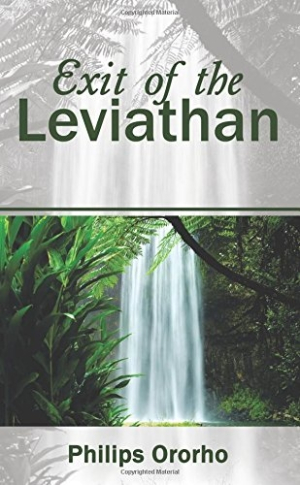Exit of the Leviathan
Passionate poems are collected in Exit of the Leviathan, an occasionally musical collection.
Philips Ororho’s lyrical but unpolished poetry collection Exit of the Leviathan focuses on faith and romance.
Love poems, paeans to God, and lamentations of human failings like wickedness, foolishness, and disbelief make up much of the collection. The poetry also touches upon life in Africa, politics, and colonialism.
The poems are earnest, sometimes reading like prayers and sometimes more like song lyrics than poetry, with random interjections of phrases like “yeah, yeah” or “oh!” Most are written in free verse and run two or three stanzas long—enough to capture their musings.
The book’s love poems are often addressed to an unnamed “woman” or “babe,” and they repeat platitudes like “you are beautiful and sweet.” “You Are Mama Eve” assures of its subject that “the mirror that proves her beauty” and that “nothing can stop [the poet] from loving [her].” Language becomes repetitive and cloying.
Inconsistent punctuation and misspellings are a point of distraction. The organization is haphazard; for example, a series of romantic poems are sandwiched between a poem about overcoming oppression and one entitled “Gathering of Evil Men.” Such abrupt shifts in subject and tone are jarring. Still, most poems are thematically gathered, and the work is easy to navigate.
In construction, accessibility, and language, the poems bear the influence of pop music; some even have choruses. Advanced poetic techniques are also occasionally employed, including alliteration and figurative language. Haunting metaphors—“everyone must learn the end-time dance”—appear, as do instances of powerful imagery and evocative titles, as in “The Sky Is Keeping To Its Mandate:”
Over the years, no eclipses, no galaxies, etc
In Nigeria and elsewhere in Africa,
Squat to get clearer views
Hidden from the sunlight and moonlight
Because, we cannot get responses from heavens in our time.
Language is readable and casual, with strokes of imagination. Poems express religious mythology and folksy wisdom, but also include more everyday insights like “bad times don’t last forever.” The poems that distinguish themselves focus on their lyricism, such as how kind words “dislodge the rampaging neurotic” in “Let The Fountain Of Flowing Love.”
Standard declarations of affection and other tendencies become repetitious, and many poems seem overly similar to others in the collection. By the end, the collection feels more hodgepodge than curated, if its tone is consistent throughout.
Passionate poems are collected in Exit of the Leviathan, an occasionally musical collection.
Reviewed by
Joseph S. Pete
Disclosure: This article is not an endorsement, but a review. The publisher of this book provided free copies of the book and paid a small fee to have their book reviewed by a professional reviewer. Foreword Reviews and Clarion Reviews make no guarantee that the publisher will receive a positive review. Foreword Magazine, Inc. is disclosing this in accordance with the Federal Trade Commission’s 16 CFR, Part 255.

